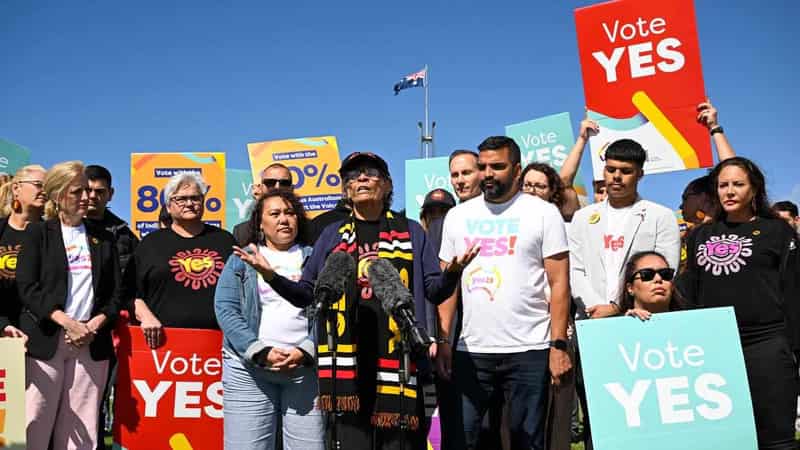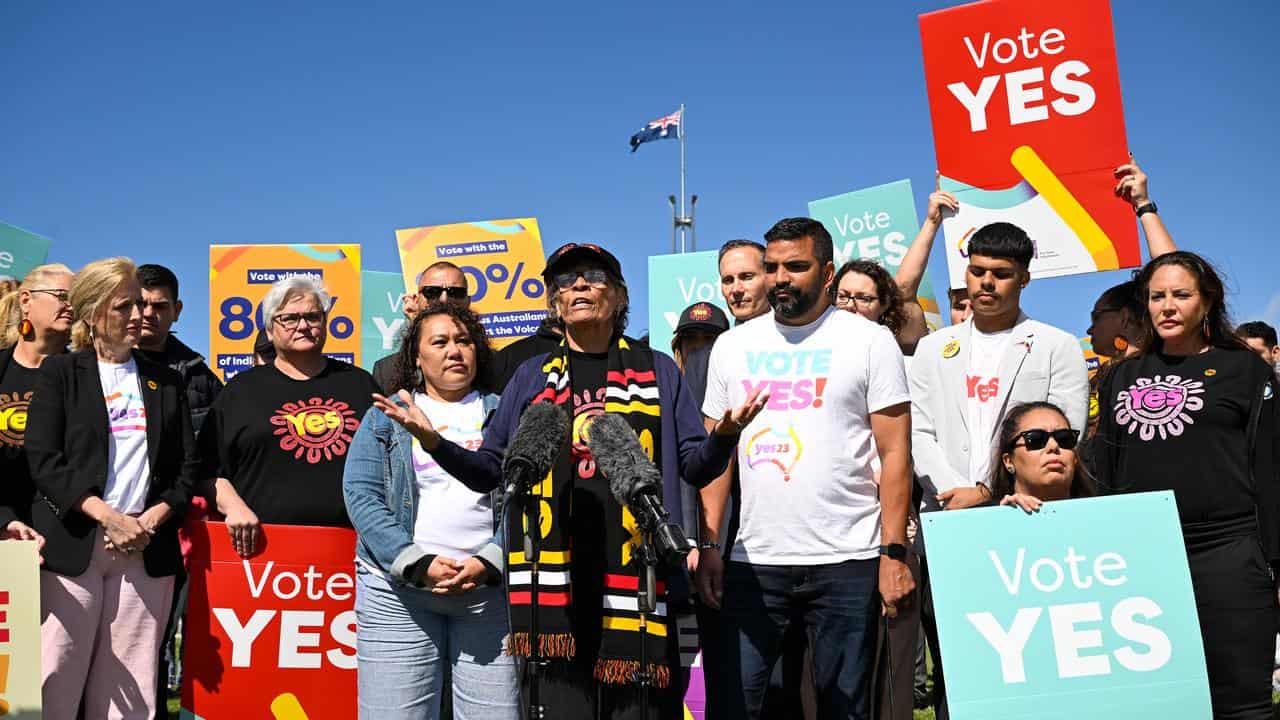
Bridget Cama remembers the anticipation she felt as Australians went to the polls to decide whether an Indigenous voice to parliament should be enshrined in the constitution.
As the results rolled in she knew there was a possibility the proposal wouldn't succeed but held onto hope until the end of the night.
It was a blow for her and many other Aboriginal and Torres Strait Islander people when 60 per cent of the votes said 'no'.
"We felt in that moment the country didn't want to include us and we felt rejected," the accomplished Wiradjuri and Fijian woman tells AAP.
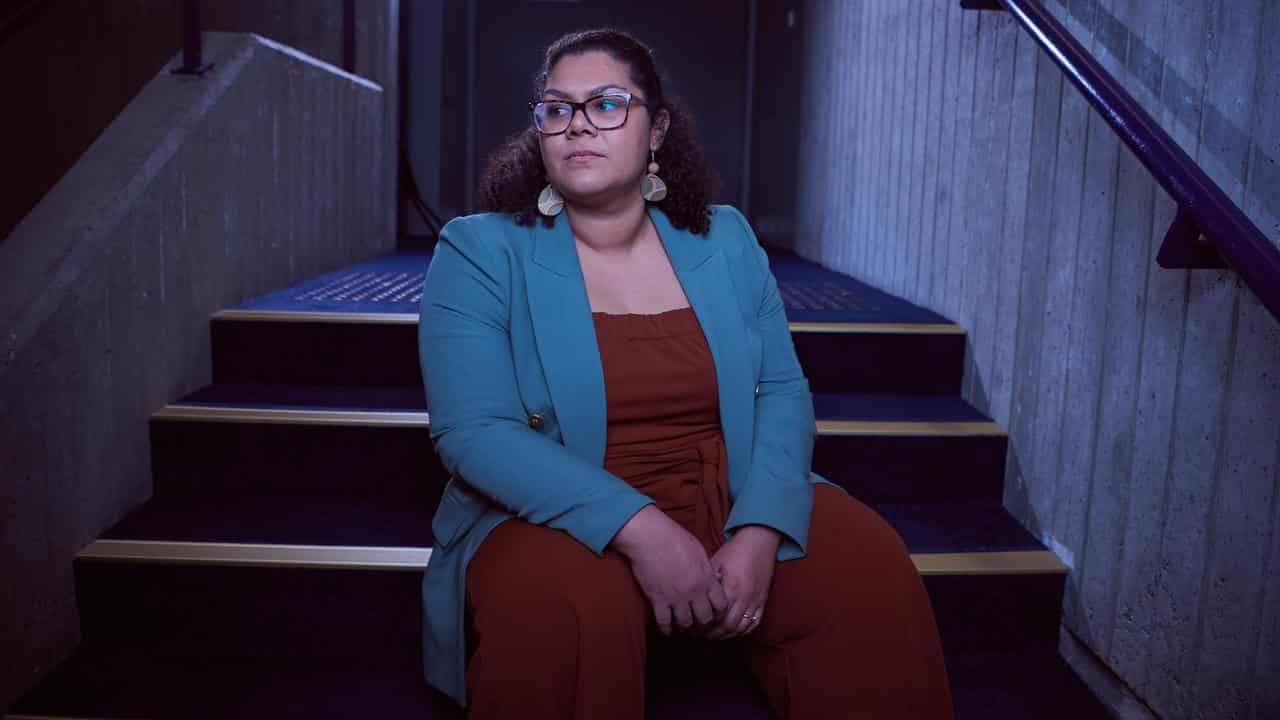
She is the co-chair of the Uluru youth dialogue, a collective of young people who support the Uluru Statement from the Heart, which calls for voice, treaty and truth for First Nations people.
Reflecting on the process and lead-up to the 2023 referendum, Ms Cama says she and her Uluru Dialogue colleagues did their best to reach everyday Australians but faced the challenges of time, distance and misinformation.
"It was a hard process," she says.
"This was the first time we were going to a referendum in the age of social media.
"Misinformation played a large role."
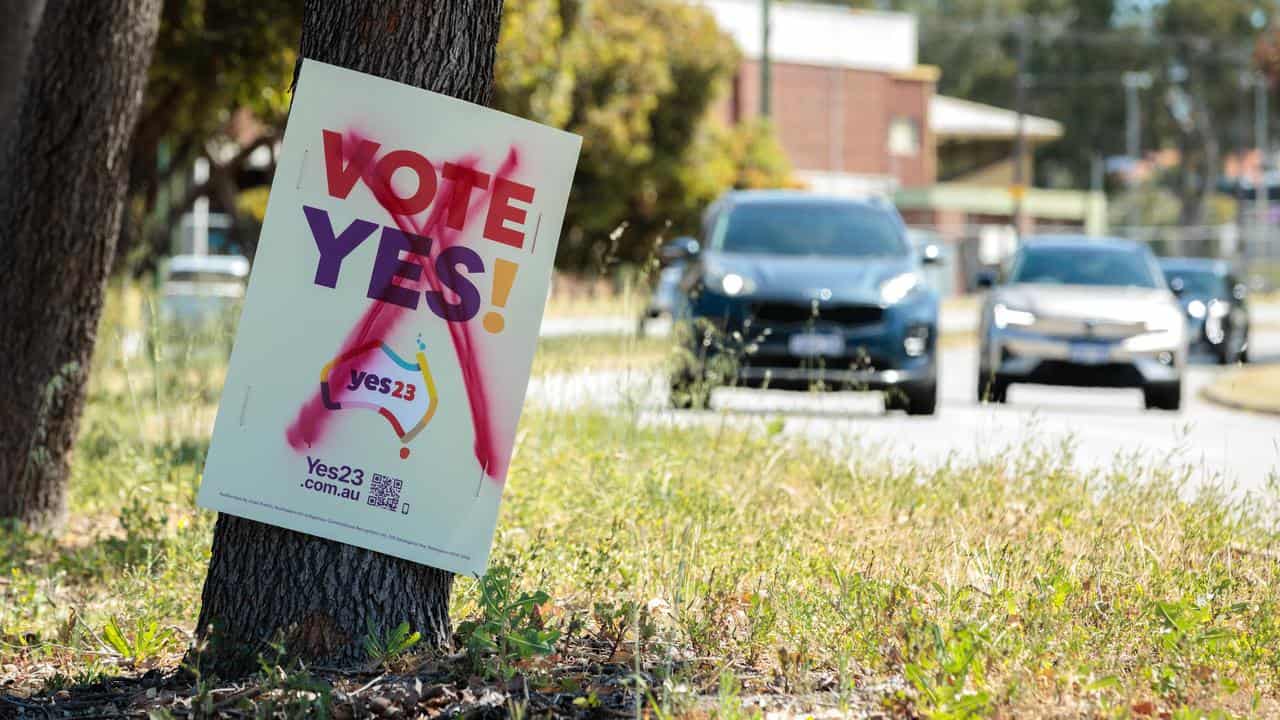
Wrong and misleading commentary surrounding the voice referendum was a source of frustration for journalist and presenter John Paul Janke throughout the campaign.
"The lies and misinformation about if the proposal got up then Aboriginal people would take your land and close up beaches ... we saw the same in the 90s during the native title debate and the Mabo decision and land rights debates of the 70s and 80s," he says.
"To see that misinformation really gain traction and be used as a weapon against ending the status quo, it was quite frustrating to see that play out in Aboriginal communities but to see it play out also in the wider community."
Mr Janke travelled the country in the lead-up to the ballot as the host of NITV's The Point and says there was a diversity of views from Aboriginal and Torres Strait Islander people around the nation.
He and the Point team have continued their overland tour to engage in post-referendum conversations and he says the hurt of the result is still palpable.
"There is a lot of pain and that feeling of rejection, that the nation rejected Aboriginal people in October last year," he says.
"People are still overcoming that pain."
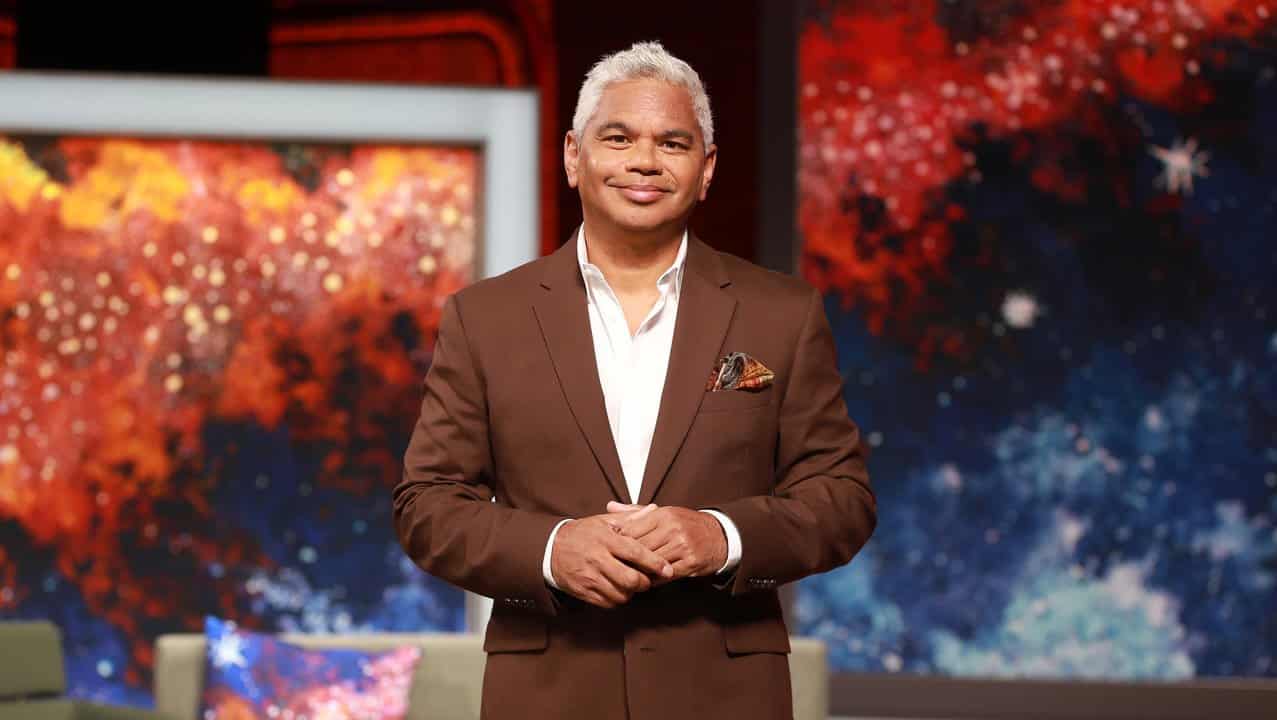
Laura Thompson has seen it reflected in her own work and community too.
The Gunditjmara woman founded streetwear brand and social enterprise Clothing the Gaps, which creates clothing and merchandise aiming to influence social change.
Since the referendum, she says, the organisation has collected the reflections of more than 200 people.
"Mob are still grieving and a lot of them are still, I think, traumatised by the whole year, " she says.
"We woke up in a world where you go into a meeting room and look out and think 60 per cent of these people voted that we shouldn't have any say over our lives, and everything changed."
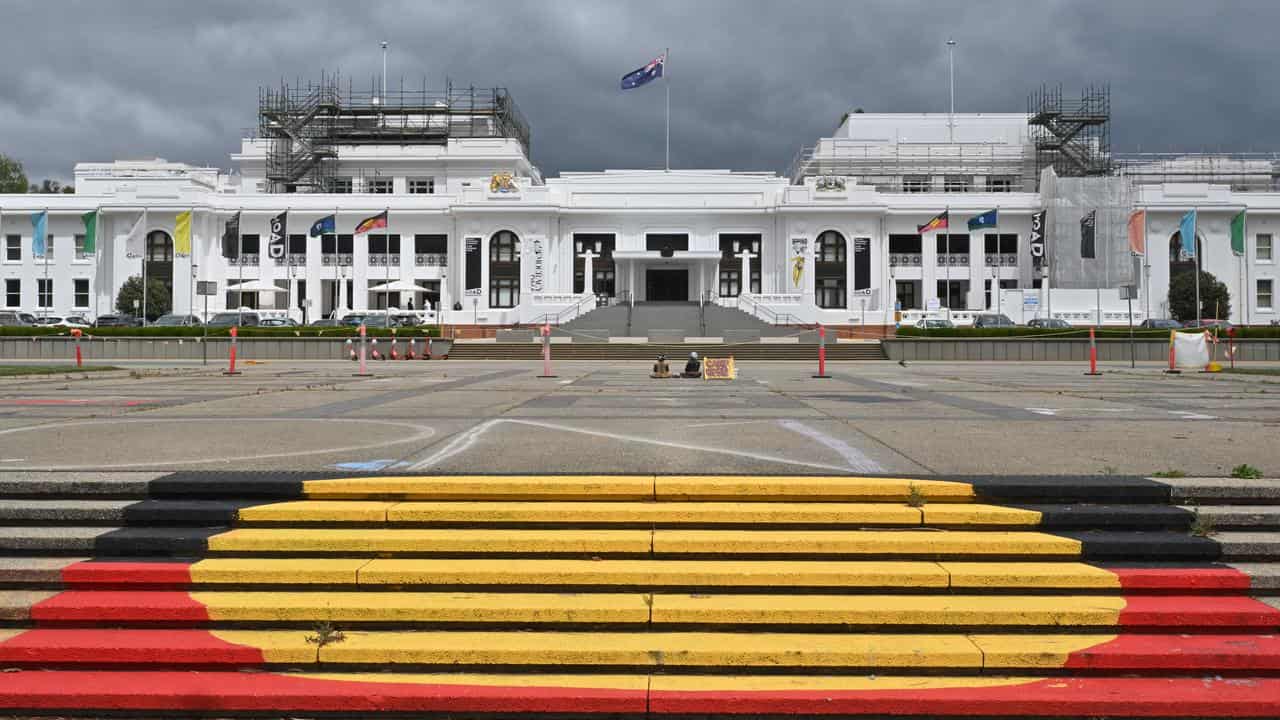
Ms Thompson said Indigenous people have not had a chance to heal from the hurt of the result and experiences of the campaign.
A year on, she says it's important to talk about this pain and grief but also to keep pressure on governments to pursue treaty and truth-telling processes.
Ms Thompson says she encourages people to "wear their values" on Monday by pulling out their 'yes' campaign merchandise and still advocating for First Nations people.
"On a day that's going to bring up a whole lot of memories of the past year and of October 14, that allyship and that visibility of support in community is going to be really important," she insists.
"We're doing free upcycling at Clothing the Gaps but you don't have to do that, I think anything that signals to the world that you stand with First Nations people now and into the future is really important."
Ms Cama holds onto the hope she felt on the night of the referendum, saying there were 6.2 million people who voted in favour of a voice.
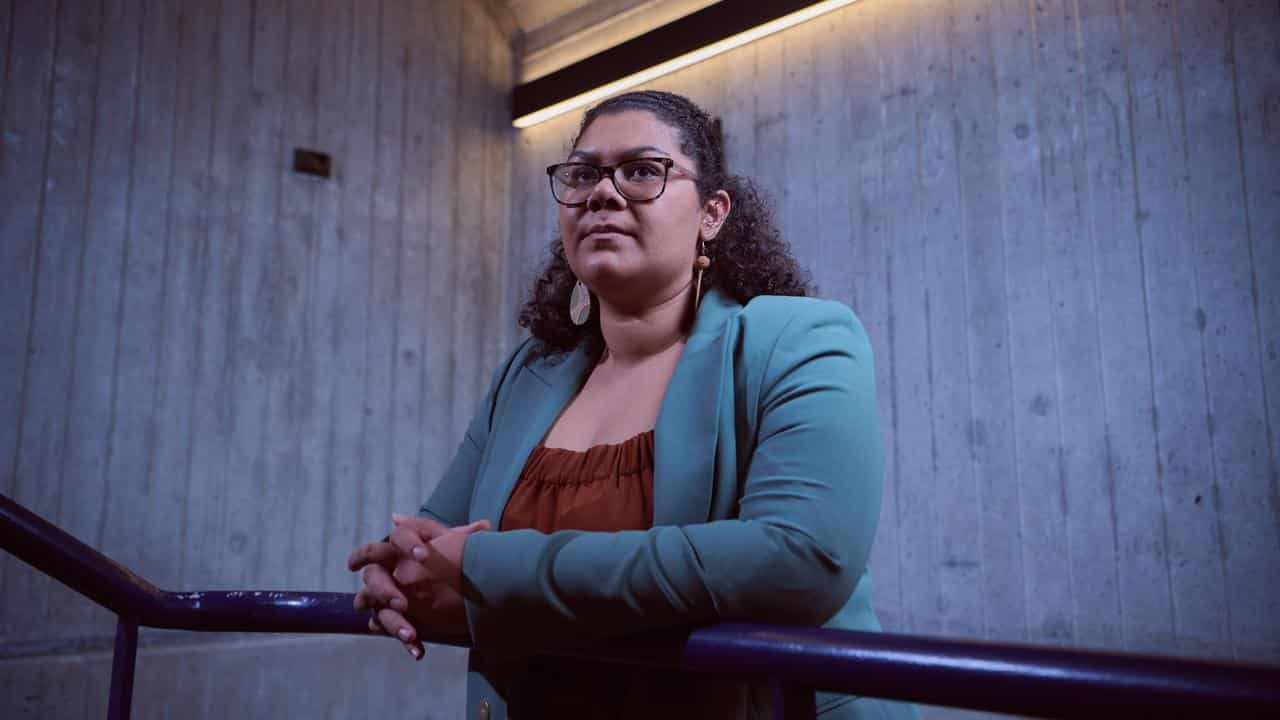
As a young Aboriginal woman, she feels responsibility to carry on the fight for constitutional recognition for her elders, the Indigenous communities who voted 'yes' and for future generations, including her own younger siblings and son.
"We still need recognition, we still need structural reform and we need a seat at the table," she says.
"That doesn't go away because the referendum failed."
